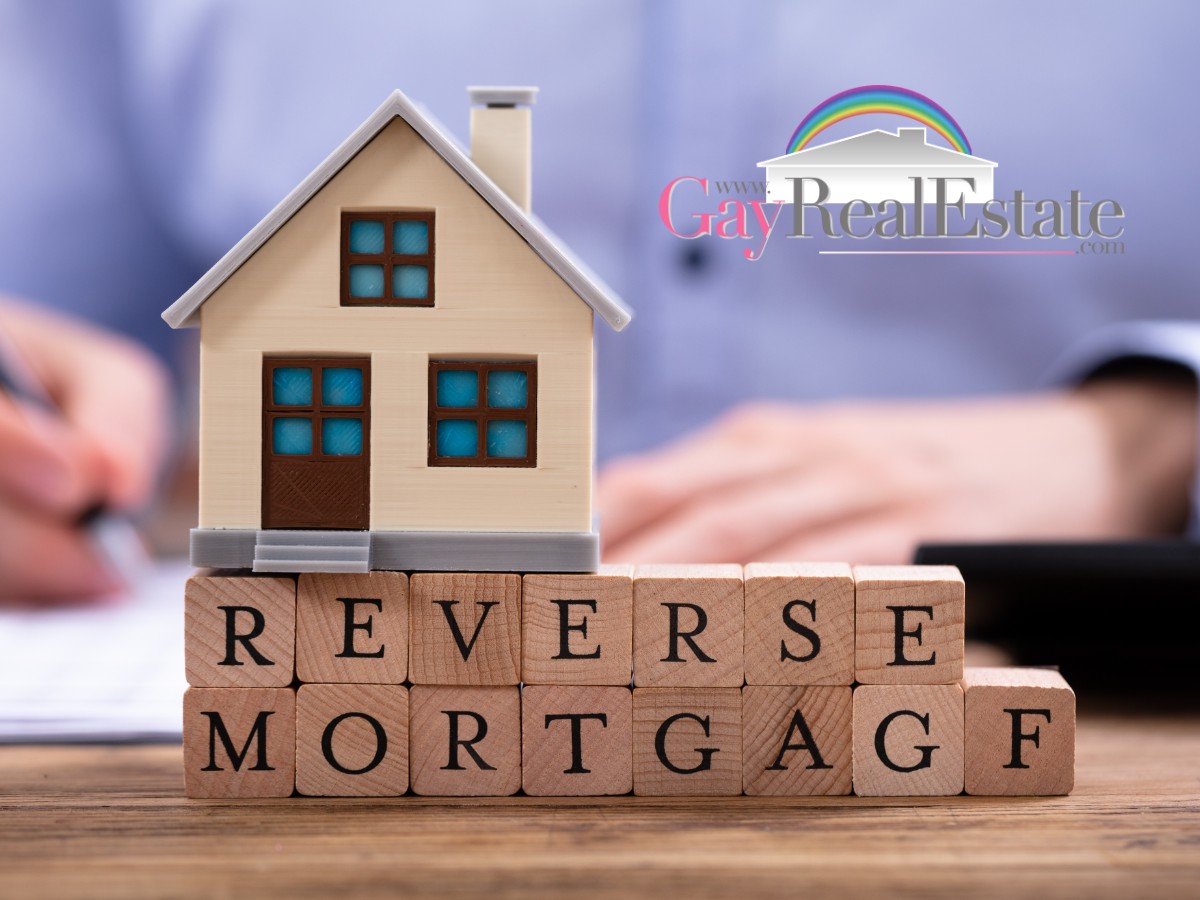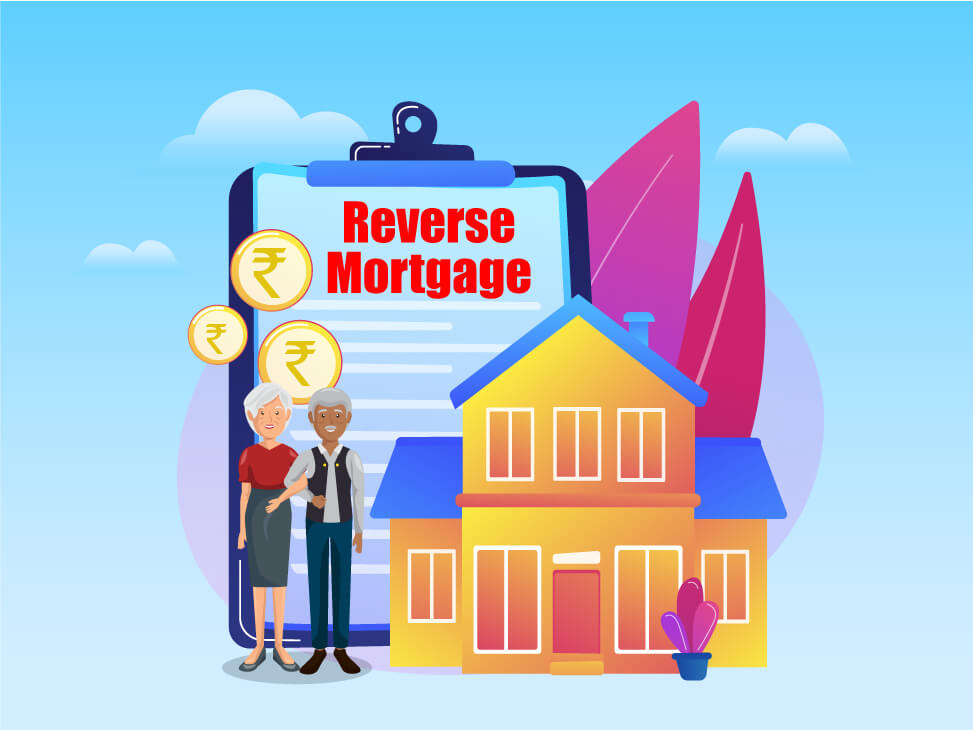How to Purchase Reverse Mortgage and Maximize Your Home’s Value
How to Purchase Reverse Mortgage and Maximize Your Home’s Value
Blog Article
Unlock Financial Liberty: Your Guide to Buying a Reverse Home Loan
Comprehending the details of reverse mortgages is important for home owners aged 62 and older seeking monetary freedom. As you consider this option, it is critical to comprehend not just just how it functions but additionally the implications it might have on your financial future.
What Is a Reverse Home Loan?

The basic appeal of a reverse mortgage hinges on its potential to boost financial adaptability during retired life. Property owners can make use of the funds for different objectives, consisting of medical costs, home enhancements, or daily living prices, therefore offering a safety and security net during a critical phase of life.
It is essential to recognize that while a reverse mortgage enables for increased cash money flow, it likewise decreases the equity in the home over time. As interest builds up on the impressive car loan equilibrium, it is vital for possible borrowers to carefully consider their lasting financial plans. Consulting with a reverse home loan or a financial advisor expert can provide valuable understandings right into whether this alternative lines up with an individual's economic objectives and situations.
Qualification Needs
Understanding the qualification demands for a reverse mortgage is crucial for house owners considering this economic alternative. To certify, candidates need to be at the very least 62 years old, as this age criterion permits elders to gain access to home equity without monthly home loan settlements. In addition, the house owner needs to inhabit the residence as their primary dwelling, which can include single-family homes, particular condos, and made homes fulfilling certain standards.
Equity in the home is one more essential demand; property owners generally need to have a substantial quantity of equity, which can be figured out with an appraisal. The quantity of equity available will directly influence the reverse mortgage amount. Candidates should demonstrate the ability to keep the home, including covering building taxes, home owners insurance policy, and maintenance prices, making sure the residential property continues to be in excellent problem.
Additionally, possible debtors need to undertake an economic analysis to review their earnings, credit report, and total economic circumstance. This evaluation aids loan providers figure out the candidate's ability to satisfy ongoing responsibilities connected to the home. Meeting these requirements is crucial for protecting a reverse home mortgage and ensuring a smooth economic transition.
Benefits of Reverse Home Mortgages
Various advantages make reverse mortgages an enticing alternative for senior citizens seeking to improve their financial versatility. purchase reverse mortgage. Among the main benefits is the ability to transform home equity right into cash money without the requirement for monthly mortgage payments. This attribute allows seniors to accessibility funds for various requirements, such as clinical expenditures, home renovations, or daily living expenses, consequently reducing economic anxiety
In addition, reverse home mortgages give a safety web; elders can remain to live in their homes for as long as they meet the funding requirements, promoting security during retired life. The profits from a reverse home mortgage can likewise be made use of to delay Social Security advantages, possibly leading to higher payments later on.
In addition, reverse mortgages are non-recourse fundings, suggesting that debtors will never owe more than the home's value at the time of sale, shielding them and their heirs from financial responsibility. The funds gotten from a reverse mortgage are normally tax-free, including one more layer of economic relief. In general, these benefits placement reverse home loans as a useful solution for elders looking for to boost their monetary situation while preserving their treasured home environment.

Charges and costs Included
When taking into consideration a reverse home loan, it's important to be aware of the different prices and charges that can impact the total economic image. Comprehending these expenditures is essential for making a notified choice regarding whether this economic product is ideal for you.
One of the key costs connected with a reverse mortgage is the source charge, which can differ by loan provider yet generally ranges from 0.5% to 2% of the home's evaluated value. Additionally, homeowners should prepare for closing prices, which might include title insurance coverage, evaluation charges, and credit rating report charges, typically amounting to several thousand dollars.
One more substantial expenditure is mortgage insurance costs (MIP), which protect the lender versus losses. This cost is generally 2% of the home's worth at closing, with a recurring yearly premium of 0.5% of the staying funding my link balance.
Last but not least, it's crucial to take into consideration ongoing expenses, such as real estate tax, home owner's insurance policy, and upkeep, as the debtor continues to be in charge of these costs. By meticulously assessing these fees and prices, home owners can much better assess the financial ramifications of going after a reverse home mortgage.
Steps to Get Going
Beginning with a reverse home mortgage involves several crucial steps that can aid streamline the procedure and guarantee you make notified decisions. Initially, analyze your monetary scenario and establish if a reverse mortgage lines up with your long-lasting objectives. This includes evaluating your home equity, current financial obligations, and the necessity for additional income.
Following, research study different loan providers and their offerings. Search for reputable institutions with favorable testimonials, transparent cost frameworks, and affordable interest rates. It's important to compare conditions and terms to locate the best suitable for your demands.
After selecting a lending institution, you'll need to finish a comprehensive application process, which commonly calls for documents of earnings, possessions, you can try these out and home information. Participate in a therapy session with a HUD-approved counselor, that will give understandings right into the ramifications and responsibilities of a reverse home loan.
Verdict
In final thought, reverse home loans offer a feasible option for senior citizens seeking to boost their economic security throughout retired life. By transforming home equity right into available funds, homeowners aged 62 and older can address various economic demands without the pressure of regular monthly payments.
Recognizing the complexities of reverse mortgages is crucial for homeowners aged 62 and older seeking monetary liberty.A reverse home loan is a financial item developed largely for property owners aged 62 and older, enabling them to transform a Get the facts section of their home equity into cash money - purchase reverse mortgage. Consulting with a monetary expert or a reverse mortgage professional can provide beneficial insights right into whether this option lines up with a person's economic goals and situations
Moreover, reverse home mortgages are non-recourse lendings, meaning that debtors will never owe more than the home's value at the time of sale, safeguarding them and their beneficiaries from financial liability. On the whole, these benefits setting reverse mortgages as a practical solution for elders seeking to improve their economic situation while keeping their valued home setting.
Report this page